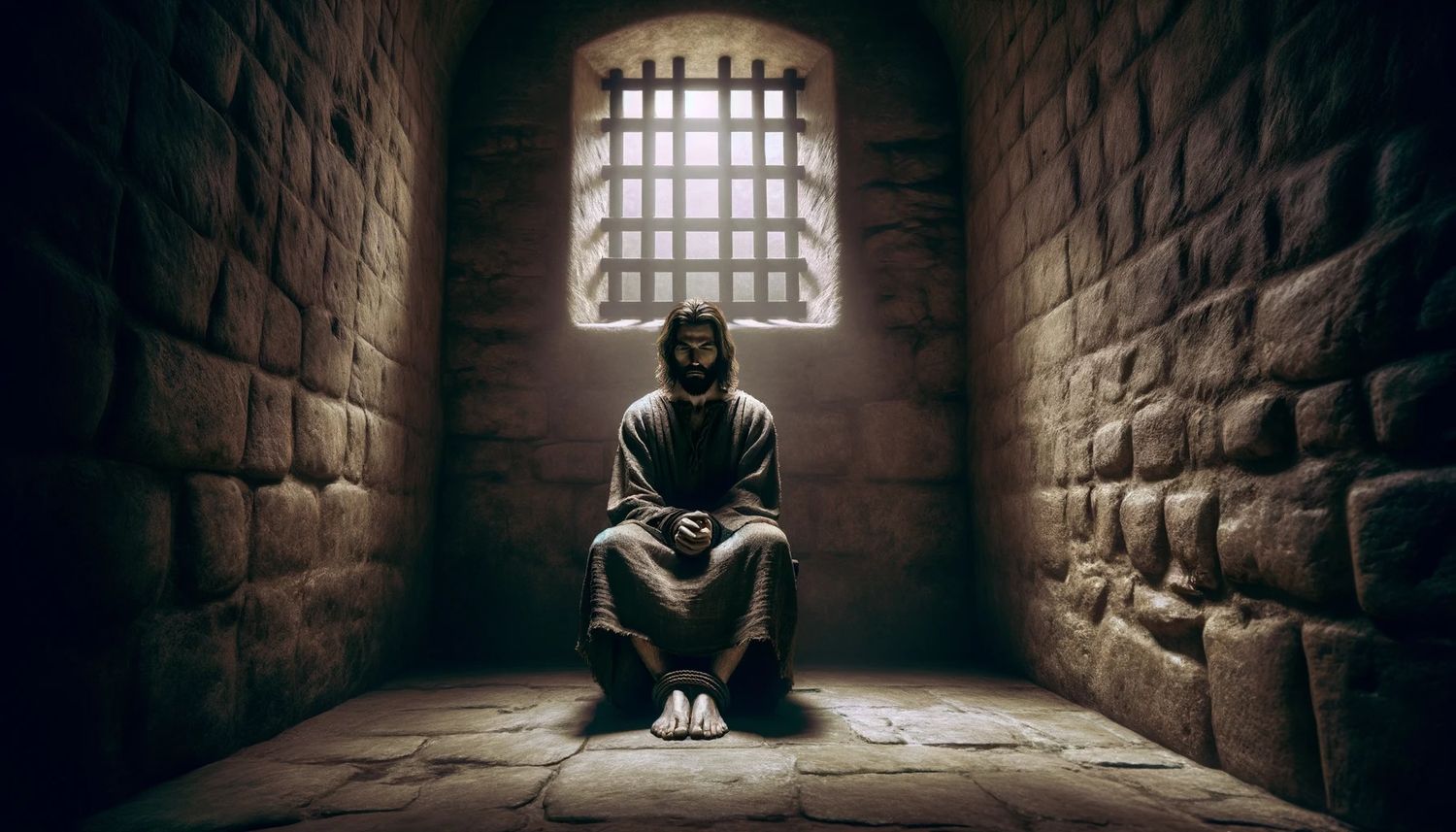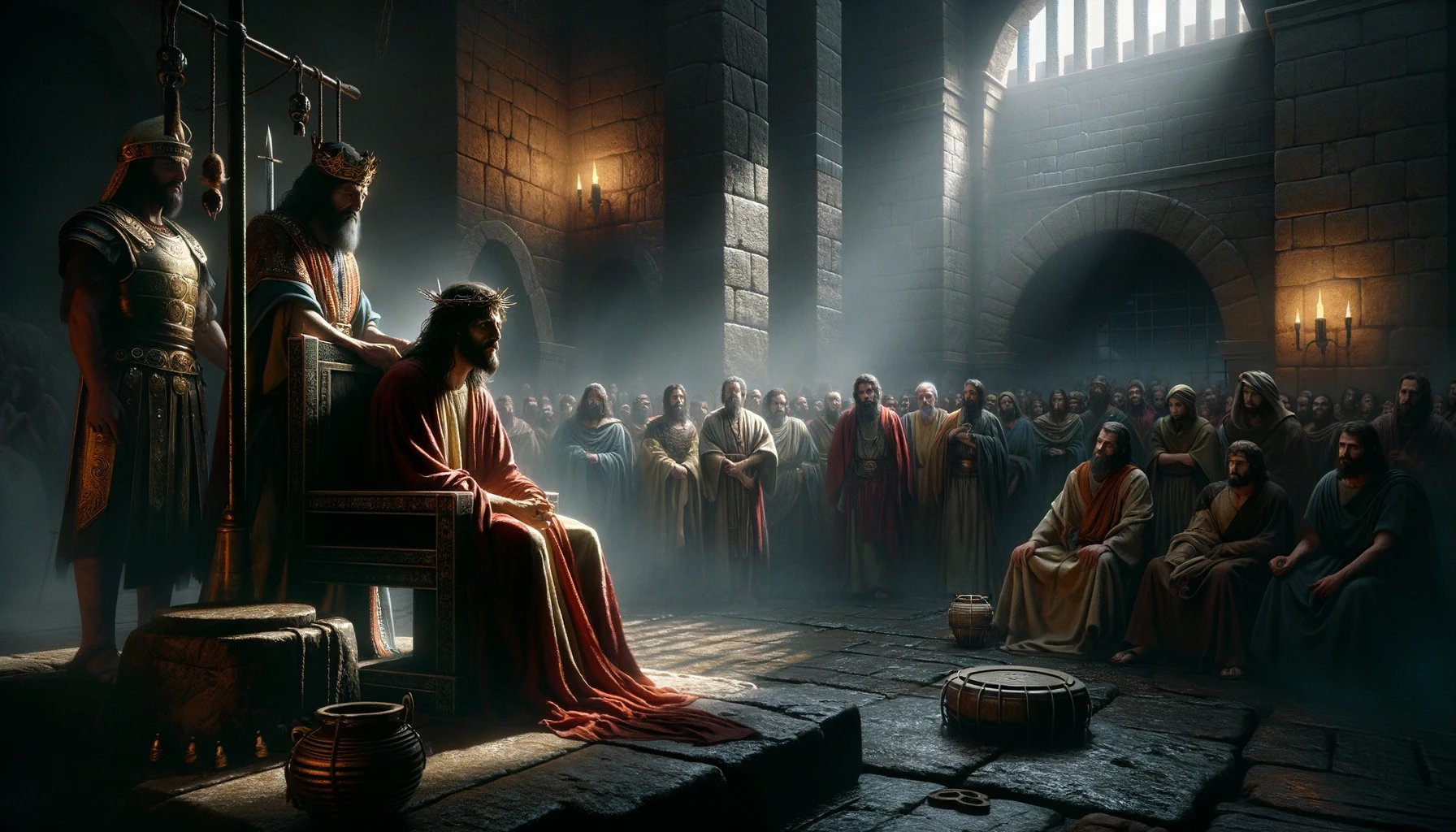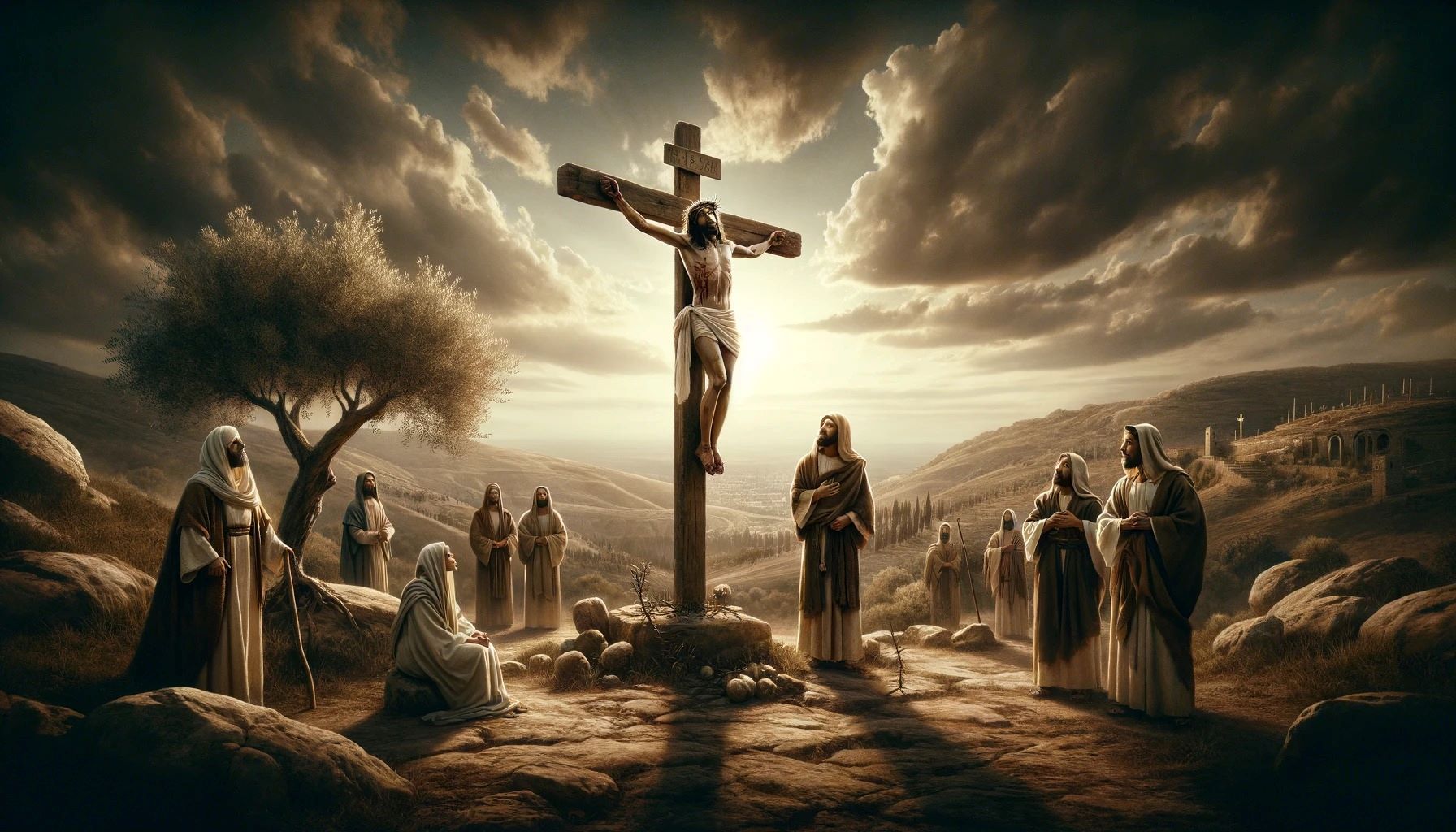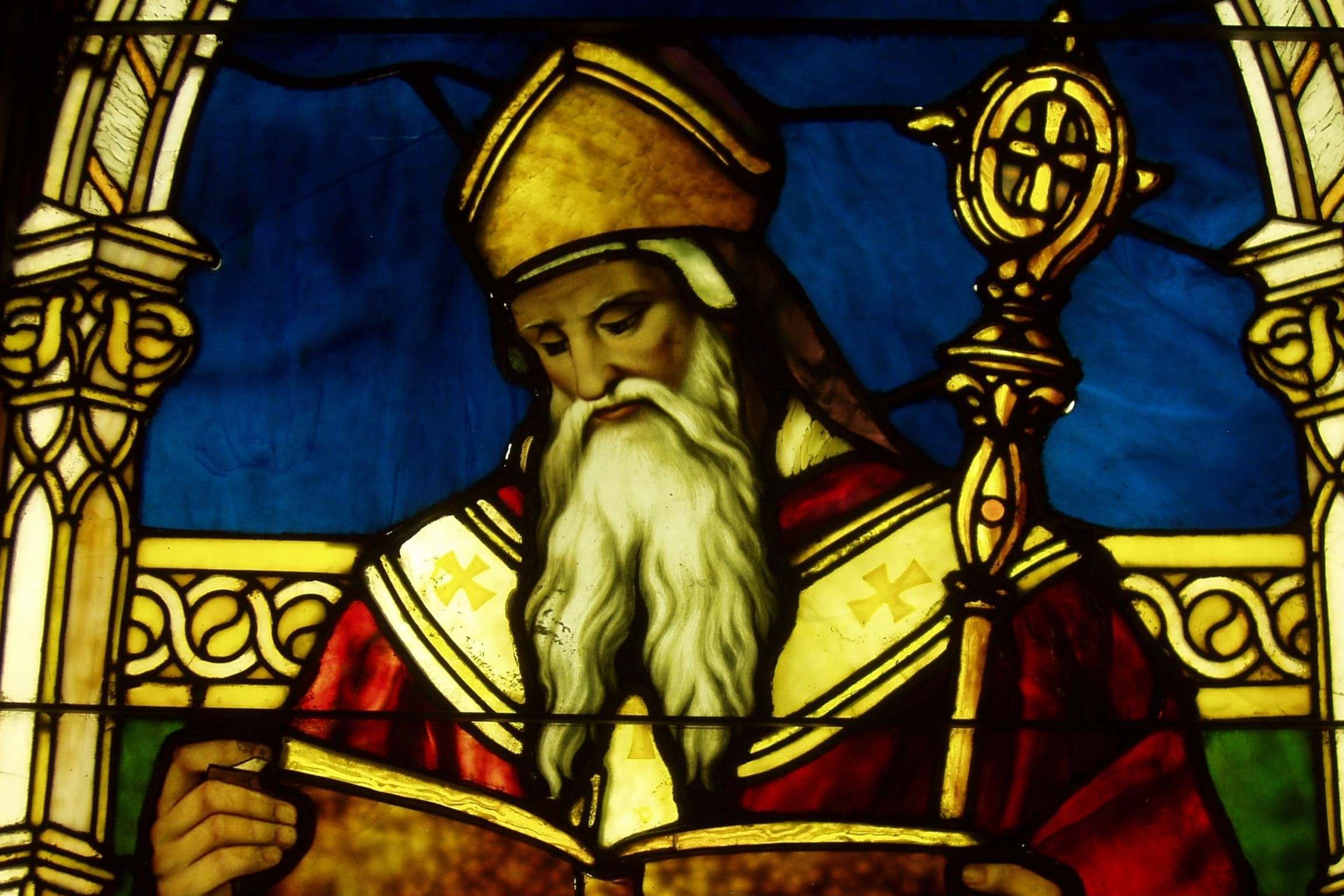Home>Theology and Spirituality>According To The Bible How Did John The Baptist Die?


Theology and Spirituality
According To The Bible How Did John The Baptist Die?
Published: February 23, 2024
Jason DeRose, Managing Editor at Christian.net, uses his expertise in religion and journalism to deepen understanding of faith's societal impacts. His editorial leadership, coupled with a strong academic background, enriches the platform’s diverse content, earning him recognition in both journalism and religious circles.
Discover the biblical account of John the Baptist's death and its significance in theology and spirituality. Explore the circumstances and implications of his martyrdom.
(Many of the links in this article redirect to a specific reviewed product. Your purchase of these products through affiliate links helps to generate commission for Christian.net, at no extra cost. Learn more)
Table of Contents
Introduction
The life and death of John the Baptist are deeply intertwined with the narratives of the New Testament, particularly in the Gospels of Matthew, Mark, and Luke. John the Baptist, a central figure in Christian theology, is known for his pivotal role as the herald of Jesus Christ, preparing the way for the Messiah through his preaching and baptism.
John's significance is evident in his birth, which was foretold by an angel to his father, Zechariah, a priest of the order of Abijah, and his mother, Elizabeth, who was a relative of Mary, the mother of Jesus. John's birth, despite his parents' old age, was a miraculous event, marking the beginning of his extraordinary life and divine calling.
As a prophet and preacher, John the Baptist fearlessly proclaimed a message of repentance and spiritual renewal, urging people to prepare for the imminent arrival of the Messiah. His ministry, characterized by humility and self-denial, attracted multitudes from various walks of life, including tax collectors, soldiers, and ordinary individuals seeking spiritual truth and redemption.
John's unwavering commitment to his mission and his moral courage in confronting the religious and political authorities of his time ultimately led to his imprisonment and, tragically, his untimely death. The circumstances surrounding his demise are a poignant and sobering reminder of the challenges faced by those who stand for truth and righteousness in a world often marred by corruption and moral compromise.
In the subsequent sections, we will delve into the events leading to John the Baptist's imprisonment, the fateful promise made by Herod to Herodias' daughter, and the ultimately tragic beheading of this revered prophet. Through this exploration, we aim to gain a deeper understanding of the profound impact of John the Baptist's life and death on the unfolding narrative of the Christian faith.
Read more: How Did The John The Baptist Die
John the Baptist's Imprisonment
John the Baptist's unwavering commitment to truth and righteousness brought him into direct conflict with the ruling authorities of his time. His fearless denunciation of the moral failings of Herod Antipas, the tetrarch of Galilee and Perea, and his public rebuke of Herod's unlawful marriage to Herodias, his brother Philip's wife, incurred the wrath of the ruling elite.
This courageous stance led to John's imprisonment, a pivotal moment in his life and ministry. The fortress of Machaerus, situated on the eastern shore of the Dead Sea, served as the place of his confinement. Despite the physical constraints of imprisonment, John remained resolute in his convictions, unwavering in his commitment to his divine calling.
While incarcerated, John's faith and resolve were put to the test. The isolation and deprivation of freedom could have easily dampened his spirit, yet he continued to inspire hope and faith among his followers. Even in the darkness of captivity, John's unwavering faith shone brightly, serving as a beacon of hope for those who sought the truth he so passionately proclaimed.
The circumstances of John's imprisonment underscore the profound challenges faced by those who stand against injustice and immorality. His steadfastness in the face of adversity serves as a timeless example of moral courage and spiritual resilience, inspiring generations to uphold their principles despite the daunting obstacles that may arise.
The imprisonment of John the Baptist marked a critical juncture in the unfolding narrative of the Christian faith, setting the stage for the tragic events that would ultimately lead to his martyrdom. This period of confinement, while a time of great trial for John, also became a testament to his unyielding commitment to his calling and his unwavering faith in the face of adversity.
Herod's Promise to Herodias' Daughter
The narrative of John the Baptist's demise takes a dramatic turn with the account of Herod's fateful promise to Herodias' daughter. During a lavish banquet held by Herod Antipas to celebrate his birthday, the daughter of Herodias, often identified as Salome, captivated the assembled guests with her mesmerizing dance. Herod, in his inebriated state and swayed by the performance, made a rash and ill-fated promise to grant her any request, up to half of his kingdom.
In a chilling display of manipulation and cunning, Herodias seized the opportunity to avenge the public condemnation she had endured from John the Baptist. Prompted by her mother, Salome requested the head of John the Baptist on a platter. Despite his inner turmoil and reluctance, Herod, bound by his oath and the fear of losing face in front of his guests, succumbed to the sinister request. This tragic turn of events culminated in the beheading of John the Baptist, a grievous and unjust end to the life of a revered prophet and messenger of God.
The episode of Herod's promise to Herodias' daughter serves as a sobering reminder of the destructive consequences of unchecked pride, moral compromise, and the manipulation of power. Herod's impulsive pledge, driven by vanity and the desire to maintain his reputation, led to the tragic loss of an innocent life and the silencing of a prophetic voice that had resounded with unwavering truth and righteousness.
Furthermore, the calculated actions of Herodias and her daughter underscore the insidious nature of unchecked ambition and the lengths to which individuals may go to satisfy their personal vendettas. Their collusion in orchestrating John the Baptist's demise reveals the depths of moral depravity to which they had sunk, driven by a desire for retribution and the preservation of their own interests.
The account of Herod's promise and its dire consequences serves as a cautionary tale, highlighting the destructive impact of unchecked power, moral compromise, and the manipulation of influence. It stands as a poignant reminder of the enduring relevance of the timeless themes of justice, integrity, and the consequences of succumbing to the allure of worldly power.
This pivotal moment in the narrative of John the Baptist's life and death serves as a poignant reminder of the enduring relevance of the timeless themes of justice, integrity, and the consequences of succumbing to the allure of worldly power.
The Beheading of John the Baptist
The beheading of John the Baptist stands as a tragic and pivotal moment in the narrative of his life and ministry. Following Herod's ill-fated promise to Herodias' daughter, the wheels were set in motion for the execution of this revered prophet. Despite his inner turmoil and reluctance, Herod, bound by his oath and the fear of losing face in front of his guests, succumbed to the sinister request. This tragic turn of events culminated in the beheading of John the Baptist, a grievous and unjust end to the life of a revered prophet and messenger of God.
The account of John the Baptist's beheading is a harrowing testament to the brutal consequences of unchecked power and moral compromise. It reflects the clash between the forces of righteousness and the corrupting influence of worldly authority. John's unwavering commitment to truth and righteousness, even in the face of persecution and ultimately death, serves as a timeless example of moral courage and spiritual resilience.
The circumstances surrounding John's beheading also shed light on the enduring relevance of the themes of justice, integrity, and the consequences of succumbing to the allure of worldly power. His unjust execution serves as a poignant reminder of the human capacity for moral depravity and the destructive consequences of unchecked ambition and the manipulation of influence.
The beheading of John the Baptist, while a tragic and sobering event, also serves to underscore the enduring impact of his life and ministry. His steadfast dedication to his divine calling, even in the face of imminent death, stands as a testament to the unwavering strength of his faith and the enduring legacy of his message of repentance and spiritual renewal.
In the annals of Christian history, the beheading of John the Baptist remains a poignant and powerful reminder of the challenges faced by those who stand for truth and righteousness in a world often marred by corruption and moral compromise. It serves as a call to uphold the principles of justice, integrity, and unwavering faith, even in the face of daunting adversity and the allure of worldly power.
Conclusion
The tragic and unjust death of John the Baptist stands as a poignant reminder of the enduring struggle between the forces of righteousness and the corrupting influence of worldly power. His unwavering commitment to truth and righteousness, even in the face of persecution and ultimately death, serves as a timeless example of moral courage and spiritual resilience. The circumstances surrounding his demise underscore the profound challenges faced by those who stand against injustice and immorality, resonating across generations as a testament to the enduring relevance of the themes of justice, integrity, and the consequences of succumbing to the allure of worldly power.
John the Baptist's life and death are deeply intertwined with the narrative of the Christian faith, serving as a powerful testament to the enduring impact of his ministry. His fearless proclamation of repentance and spiritual renewal, his unwavering faith in the face of adversity, and his ultimate sacrifice have left an indelible mark on the annals of Christian history. His legacy continues to inspire countless individuals to uphold their principles and stand for truth, even in the face of daunting obstacles.
The account of John the Baptist's imprisonment, Herod's promise to Herodias' daughter, and the tragic beheading of this revered prophet serve as cautionary tales, highlighting the destructive consequences of unchecked power, moral compromise, and the manipulation of influence. These timeless themes continue to resonate with profound relevance, offering invaluable lessons for individuals and societies alike.
In the face of adversity and moral depravity, John the Baptist's unwavering commitment to his divine calling shines as a beacon of hope and inspiration. His life and death stand as a testament to the enduring power of faith, the resilience of the human spirit, and the timeless relevance of the pursuit of justice and righteousness.
As we reflect on the profound impact of John the Baptist's life and death, we are reminded of the enduring relevance of his message and the timeless significance of his legacy. His steadfast dedication to truth and righteousness serves as a timeless example for individuals and communities, calling upon us to uphold the principles of justice, integrity, and unwavering faith in the face of adversity and the allure of worldly power.















